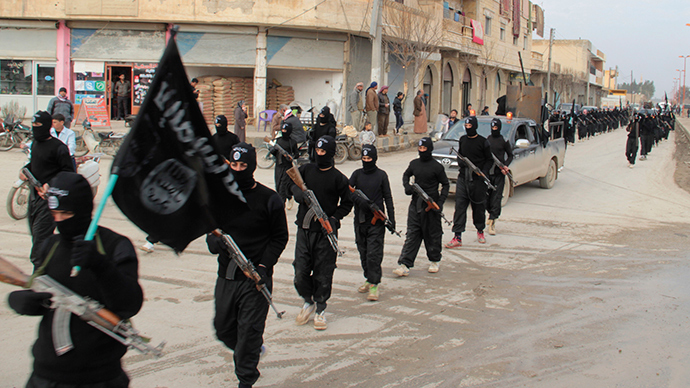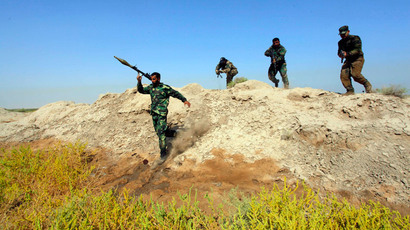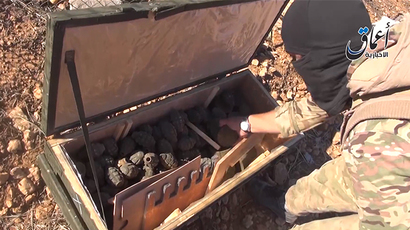‘World’s wealthiest terror org’: US vows to cut ISIS revenue sources

Oil sales, ransoms and extortions help ISIS “generate tens of millions of dollars” monthly, the US Treasury estimates, promising to undermine the group’s finances and to impose sanctions on anyone attempting to do business with the extremists.
The Islamic State (IS, formerly ISIS/ISIL) has “amassed wealth at an unprecedented pace” and is now “probably the best-funded terrorist organization” the US has confronted, according to Treasury undersecretary for terrorism and financial intelligence, David Cohen.
READ MORE: Pentagon admits weapons-drop fail as anti-ISIS operation hits $424mn
The bulk of the group’s wealth comes from oilfields in Syria and
Iraq that are under the IS control, with oil sales earning the
group “approximately $1 million a day,” the official
said on Thursday, speaking at the Carnegie Endowment for
International Peace.
The vice-president for the Endowment, Marwan Muasher, said the
Islamic State is now "considered the world's wealthiest and
most financially sophisticated terrorist organization," AFP
reported.
The US Treasury has been determined to undermine the terror
group’s sources of finance, but acknowledged the task is a
challenging one.
“We have no silver bullet, no secret weapon to empty ISIL’s
coffers overnight. This will be a sustained fight, and we are in
the early stages,” Cohen said.

The official specified that the IS was selling oil at
lower-than-market prices to various middlemen, including those
from Turkey.
“It also appears that some of the oil emanating from
territory where ISIL operates has been sold to Kurds in Iraq, and
then resold into Turkey,” Cohen said.
He has also lashed out at Damascus over a possibility of it
cooperating with the IS.
“And in a further indication of the [President Bashar] Assad
regime’s depravity, it seems the Syrian government has made an
arrangement to purchase oil from ISIL.”
READ MORE: ISIS chlorine attack on security forces confirmed – Iraq officials
Washington is ready to impose economic sanctions on whoever it
finds is engaged in doing business with the IS.
“The middlemen, traders, refiners, transport companies, and
anyone else that handles ISIL’s oil should know that we are hard
at work identifying them, and that we have tools at hand to stop
them,” Cohen warned.
“We not only can cut them off from the US financial system
and freeze their assets, but we can also make it very difficult
for them to find a bank anywhere that will touch their money or
process their transactions,’ he added.
In September, analysts interviewed by AP, estimated the IS could have been getting about $25
to $60 per barrel for its smuggled oil, compared to about $100
market price at that time.
The total profit of the extremist group was then estimated at $3
million a day by Luay al-Khatteeb, a visiting fellow at the
Brookings Institution's Doha Center in Qatar.
An October report by IHS, a US-based consulting group,
estimated that the IS was making up to $2 million per day, or
$800 million a year, by selling oil on the black market before
the US-led airstrikes.














